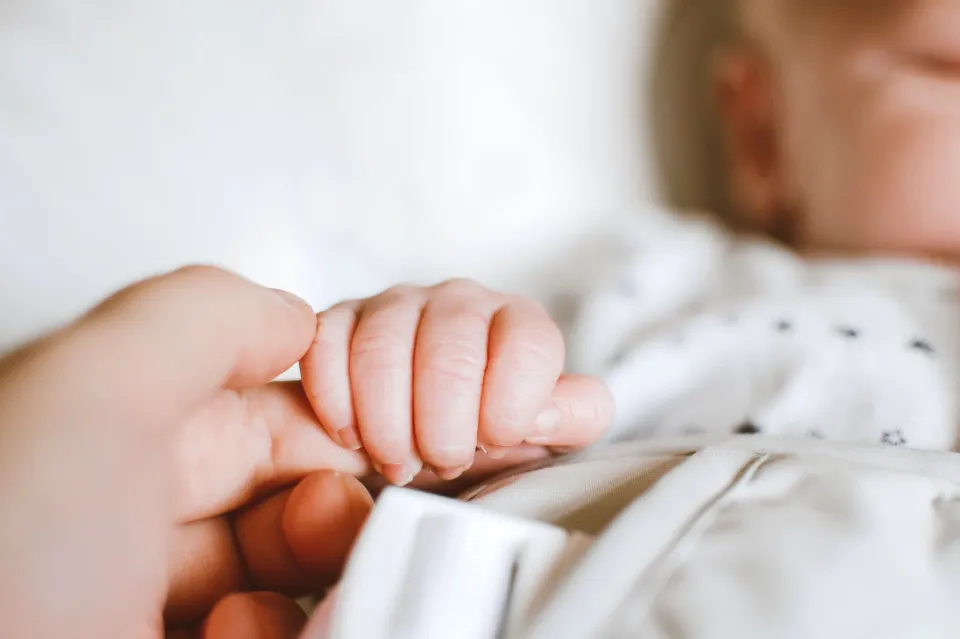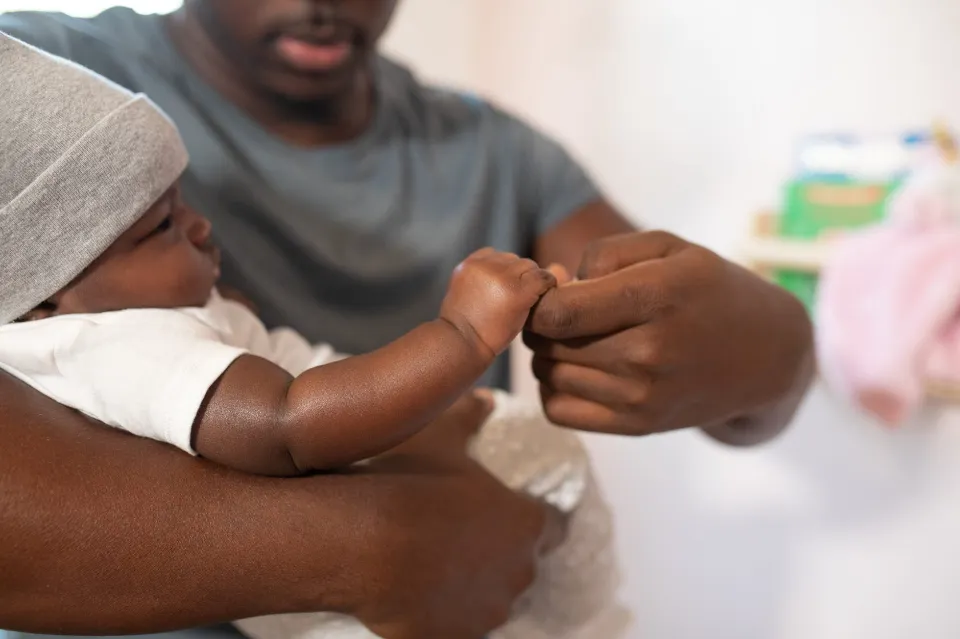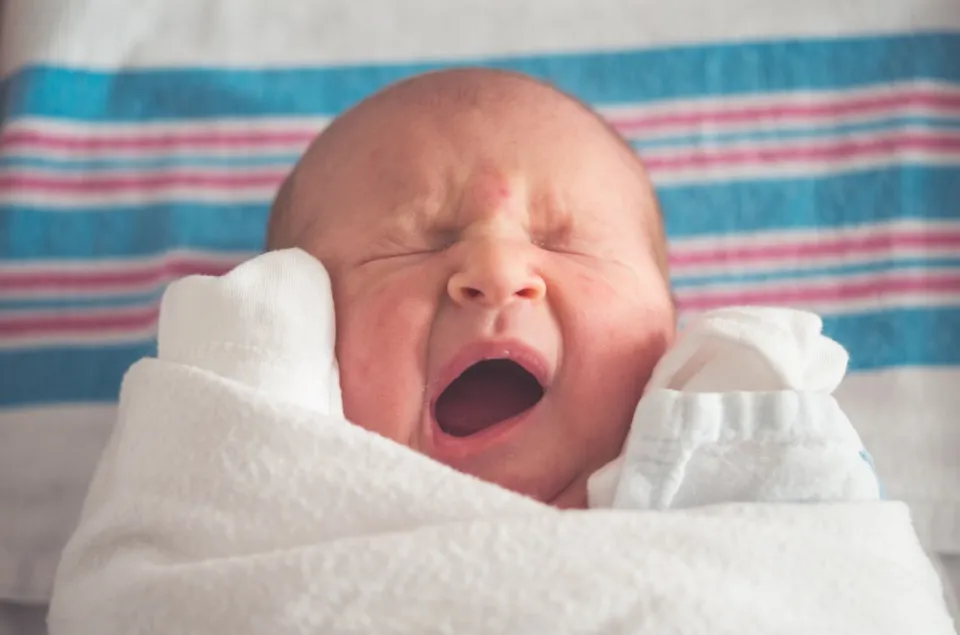
Why Does My Baby Have Cold Hands – Decoding the Mystery
As a parent, you are very concerned about your child’s health, including the development of their small hands. Ever notice how frequently your child’s hands feel colder than the rest of their body? This phenomenon may be troubling and cause questions.
The potential causes of your baby’s possible cold hands will be discussed in this article. We’ll go over typical physiological factors, environmental influences, and potential underlying medical conditions that might have something to do with this occurrence.
To help you keep your baby’s hands warm and ensure their comfort, we’ll also offer helpful advice and strategies. Now that we know why your baby’s hands might feel cold, let’s explore this mystery.
Is It OK for My Baby’s Hands to Be Cold at Night?

There is a need to address this right away, and the answer is that there is. In most cases, babies’ cold hands are normal and cause for no concern.
The presence of cold hands in your baby is probably not a problem if they don’t appear anxious or upset, aren’t uncomfortable, or exhibit any signs of illness.
Another reliable indicator is how well your baby sleeps. Because their sleep cycles are brief and they spend a lot of time awake, babies are light sleepers. Your baby may struggle to fall asleep at night or for naps, or they may wake up earlier or more frequently than usual if their hands are too cold and causing them pain.
Why Does My Baby Have Cold Hands at Night?

Because they can’t regulate their body temperature as quickly as adults, babies often have cold hands. Their feet are the same way.
The fact that a baby’s core temperature is actually a little higher than an adult’s body temperature is perplexing. The warmth tends to stay in the core because they can’t regulate their temperature as quickly as other animals. Arms, hands, legs, and feet stay cooler as a result.
They are naturally even colder because their hands are frequently more exposed and uncovered than their limbs and feet.
Do Babies Lose Heat through Their Hands?
Babies who have their hands exposed will lose some of their body heat through them. Their hands are typically cold, but this is not the cause. Because babies’ blood circulation is poor, the heat doesn’t reach their hands in the first place, which is the main cause of their cold hands.
Their relatively sedentary lifestyle is the main cause of their poor circulation. Babies, especially newborns, spend the majority of their days lying still and not doing much. This reduces blood flow to the limbs even though it is completely normal and healthy.
Read More: Should I Wake My Newborn to Feed at Night
As infants grow older, they begin to explore and move around more. Warmer little hands and feet are the result of the improved blood circulation caused by this.

Tips to Keep Baby Hands Warm at Night
Put Mittens on Your Baby’s Hands
In the event that your baby is still a newborn, chances are good that you already have some scratch mittens on hand. Baby hands can stay warm with these at night. You can buy scratch mittens at the majority of baby clothing retailers if you don’t already have any.
Use newborn scratch mittens if they are not too small, or purchase larger stay-on mittens, such as the Goumimitts on Amazon, which fit babies up to 6 months. The larger size mostly fits a toddler, while the small size is already quite large. They fasten with velcro so they won’t come off like most mittens, and you can adjust them to fit your baby’s wrists comfortably.
Try Using Socks as Mittens to Keep Baby Hands Warm
Try using socks as mittens if you are unable to find mittens that stay on your baby’s hands or if you simply do not want to purchase mittens. Simply cover their hands with warm socks before pulling the sleeves of their onesie up over the socks.
Due to their thicker, fluffier nature and ability to prevent your baby from scratching, socks can be a good choice for keeping your baby’s hands warm. Additionally, they stay on much better than regular mittens.
If your baby chews on their hands and you’re concerned that the moisture will make them colder, you could buy wool socks like these. The best material for controlling body temperature is wool, which also wicks away moisture to prevent feeling wet when it becomes damp.
Try Swaddling If Your Baby Can’t Roll over Yet
Swaddling can be a fantastic way to keep your baby’s hands warm at night if they are still unable to roll over. Swaddling refers to tightly encasing your infant in a blanket so they are unable to move their arms. This may increase their sense of security and prevent their arms from flailing about and becoming chilly.
Even your baby’s hands will stay warm and cozy when swaddled. Just be careful not to wrap your baby too tightly, and make sure to check on them frequently to make sure they aren’t getting too hot. To protect your baby from harm, make sure you are swaddling your child properly.
When Your Baby’s Cold Hands Could Be a Concern

As previously stated, cold hands are typically completely normal. However, occasionally this might be a sign of an illness, so it’s important to look out for other issues.
A Fever Can Cause Cold Hands
Always be on the lookout for feverish symptoms, which can contribute to cold hands. As the body of your infant battles the fever, other parts of the body lose heat as a result.
Something More Serious
This could be a sign of something more serious, so you should seek medical advice if your baby’s cold hands are also accompanied by bluish lips, skin that is bluish, and/or skin that is mottled.
Do You Need to Cover Your Baby’s Hands at Night?
The hands of your infant don’t need to be covered at night. Cold hands should not bother them as long as their internal body temperature is normal.
It’s acceptable if you believe that your baby’s exposed extremities are causing them discomfort and believe that covering their hands will improve their comfort or lessen nighttime awakenings. However, it must be done in a safe manner.
When to Call the Doctor?
A baby’s body temperature is typically 97.52°F. If your baby’s hands are chilly, check their body temperature and wrap them in layers. Get medical help right away, though, if this doesn’t warm their hands and you notice any of the following signs.
- Vomiting
- Diarrhea
- Central body parts become cold
- Lethargy
- Unexplained rashes
- Seizures
- Fussiness
- Loss of appetite
Bottom Line
Conclusion: Your baby may not necessarily be cold at night even though his or her hands may be cold.
There are a few things you can do to help keep your baby’s hands warm if you’re still concerned about them being cold. A sleep sack with integrated mittens, swaddling your child, or using socks as mittens are all options.
What additional advice do you have for keeping a baby’s hands warm at night? Include them in the comments section below.





Average Rating